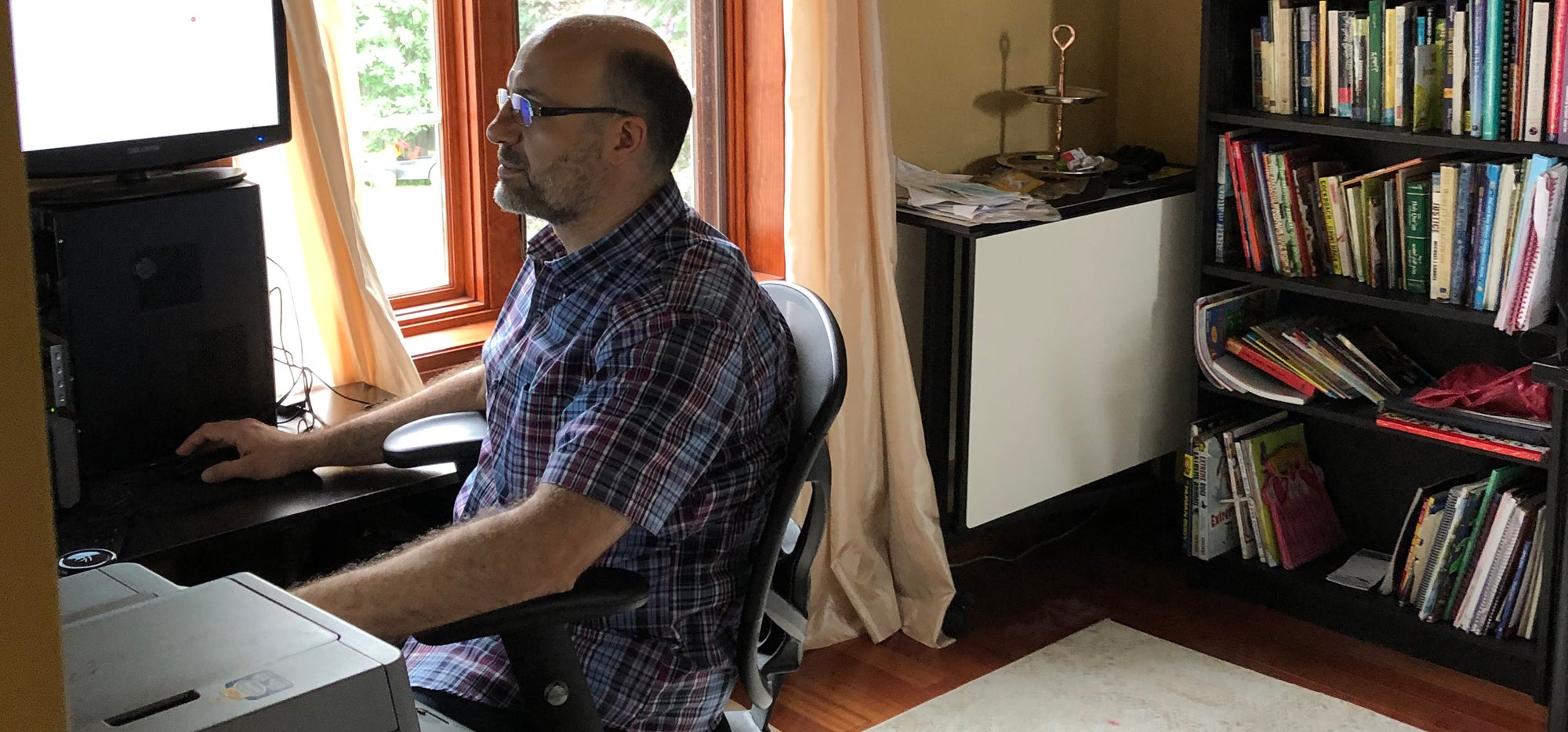
Adapting activities for online environments

Prof. Wasem Alsabbagh working from home
Six professors at the School of Pharmacy recently received funding through the Dean’s Undergraduate Teaching Initiative (DUTI) to introduce educational innovations in their courses. Though the transition to online learning necessitated by COVID-19 disrupted some of these plans, instructors at the School have quickly adapted their activities to an online environment.
Prof. Wasem Alsabbagh is one of these recipients and he intended to use the DUTI to implement team-based learning (TBL) activities. These activities were designed to simulate the three phases of team collaboration: preparation (a review of knowledge-based material), readiness assurance (achieved through assessments of the team and the individual student) and application (achieved through collaborating as a team to build a care plan).
A team-based approach is essential for the topic Alsabbagh covers: cardiology.
“Treatment options for heart conditions are complex and collaboration across professionals is essential to providing optimal care for patient,” he says. “Similarly, a team-based approach helps students enhance their clinical skills by stimulating discussion with peers and encouraging them to both teach and learn from each other.”
Using funding from the DUTI, Alsabbagh hired additional pharmacist teaching assistants – Waterloo Pharmacy alumni Mira Maximos and Emily Cowley – to develop assignments that reflected the complexity of providing care to patients with heart conditions or who have suffered a cardiac event. These assessments were designed for groups of students to work on patient cases, moving through the preparation, readiness assurance and application phases. The shift to online learning meant Alsabbagh had to adapt these assignments.
“Unfortunately, with the online environment we face challenges like students in different time zones, different levels of technology and internet access and different personal situations. It wasn’t feasible or fair to run the team-based assessments synchronously,” he says.
So, Alsabbagh took the exercise and broke it up into sections, replicating the team components from those three TBL phases with individual components: preparation, readiness assurance and application. He took concepts from each of these phases and built individual assessments in UW’s learning management system, LEARN, and in TopHat, a real-time testing platform. Students logged in at their convenience and completed the quizzes which included multimedia and various question types.
“As faculty, we were also learning about optimal methods of delivering assessments online,” says Alsabbagh. “One best practice that emerged was the need for multiple low-stakes assessments instead of several large assessments.”
For each of these smaller quizzes, students responded questions on each phase as they related to an example patient case. For the preparation phase, they had to identify the best possible care plan for the patient. In each quiz, they received feedback in real-time for each answer they selected, helping them consolidate their learning.
“Overall, students received these assessments well. They gave them the ability to study in their own time and see the feedback of their answers directly,” says Alsabbagh. “Feedback is important to clarify misconceptions and can help in stimulating better understanding of information.”
Going forward, Alsabbagh intends to use both elements of the adapted online assignments and the original ones he and his TAs designed with the support of the DUTI.
The Dean’s Undergraduate Teaching Initiative (DUTI) is a $500,000 investment to implement innovative and effective evidence-based teaching approaches within the Faculty of Science – with the goal of enhancing the undergraduate educational experience.